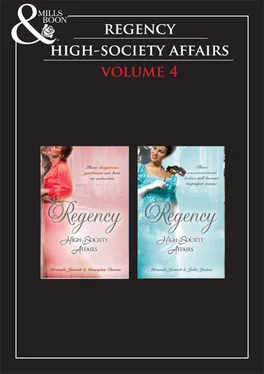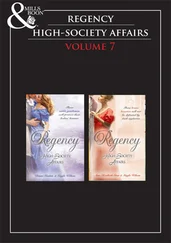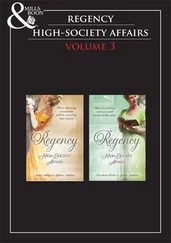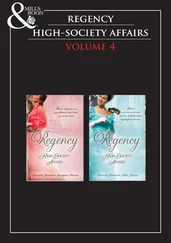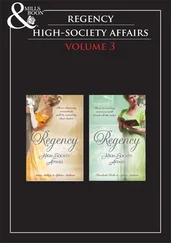The moon was nearly risen before Michel stopped to rest the horses. Since they’d left the Faulks’ farm, Jerusa had said not a word to him, and the silence between them had grown deeper and more uncomfortable with every step.
He tried to tell himself it was better this way. What was the point of listening to her ill-timed attempts at conversation or deflecting yet again the same questions she insisted on asking, which he’d no intention of answering? She was his prisoner, his hostage, his bait, his enemy. That she was also quite beautiful must be inconsequential. She was neither his friend nor his lover, and the sooner he remembered that and stopped thinking of her as a woman, the better for them both.
Easy to resolve, impossible to do. How could he ignore how neatly his hands fit around her waist as he helped her from her horse, or the way her scent filled his senses as she brushed against him? On her, even the unassuming clothing he’d bought seemed to accentuate the ripe, full curves of her body, and he couldn’t forget the glimpse he’d had of her breasts, firm and lush, above her stays when he’d cut her from her tattered wedding gown. Mordieu, why was nothing easy where this woman was involved?
He watched her as she returned from the bushes, her eyes carefully downcast to avoid meeting his. At least this way he wouldn’t have to pretend he wasn’t watching her. In the moonlight her face was pale, her hair, in its loosened braid, a dark cloud around her shoulders. Maybe it was seeing her so often by moonlight that had unsettled him this badly.
Unsettled: that was how he’d described her to the Faulks, the same term the Parisian doctor from Port Royal preferred. What devil had put such a word into his mouth last night, anyway?
He held out a flask he’d taken from the horse’s pack. “Mrs. Faulk’s cider,” he explained as she stopped before him. “She sent it along especially for you.”
Jerusa glanced at the flask, reminded again of how easily he’d thwarted her at the farm. She didn’t want the cider; she didn’t want to take anything from him.
“Go ahead, ma chérie,” he said, irritated by her silence. He’d expected her to be angry for what he’d done, but she’d no right to turn sullen. “I swear it’s not poisoned. Not by me, or by Mrs. Faulk.”
“A dubious recommendation,” murmured Jerusa. Though the Frenchman’s eyes were masked by the shadow from his hat, there was no mistaking his mood, surly and ill-humored. He hadn’t shaved since they’d left Newport, and the dark stubble around his jaw only made him look less like the gentleman he’d pretended to be. “No doubt she thought her celebrated cider might benefit a poor, pitiful mad creature like myself.”
“She believed you would enjoy it.” Inwardly he winced at her words, shamed. He had never before used madness as a pretense, and he didn’t know what had made him do it now. To draw from his own mother’s distress to save a useless chit like this one, the daughter of Gabriel Sparhawk— morbleu, what had he been thinking?
“Indeed.” Finally she took the flask, carefully avoiding touching his fingers, and swept back her hair from her forehead as she briefly lifted the flask to her lips to drink. “Then that was all Mrs. Faulk should have believed.”
He shrugged. “She believed what she wished.”
“What you wished, you mean,” said Jerusa tartly. “There’s a difference.”
His mouth curved into a mocking smile. “All your life you’ve had everything your own way, haven’t you, Miss Jerusa? How instructive for you to have it otherwise!”
She dismissed his question by ignoring it. “You don’t care for my questions, Monsieur Géricault,” she said with icy politeness, “but can you please tell me why you told them what you did about me?”
“You left me no choice.”
“No choice,” she repeated incredulously. “Wasn’t it bad enough to claim I was your wife without insisting I was witless, too?”
His jaw tightened. He wasn’t accustomed to explaining his actions to anyone. It was much of the reason he’d been so successful. At least until now.
She sighed impatiently. “They were going to let us go free anyway. There was absolutely no reason for us to go traipsing back to their home. Except, of course, your great love for cider.”
She shoved the flask back against his chest and turned away. Swiftly he seized her arm and jerked her back around to face him.
“I may not like your questions, ma petite folle, but you’ll like my answers even less,” he said, holding her fast as she tried to break free. “Do you flatter yourself to think I’d truly want you for my wife? But as my wife, you also have my protection. Didn’t you notice how those men left you alone once I said you were a respectable woman? What do you think they would have done to you otherwise?”
“They were farmers, not brigands!”
“They were men, chère.”
“They would not have dared a thing when they learned who I was!” She struggled again, uneasily aware of the same odd sensations his touch had caused that first night in the barn. No matter how much he claimed to be her protector, she sensed that the darkness hiding within him could be infinitely more dangerous.
“But they didn’t believe you, ma chérie. The Sparhawks are gentry. Even the Faulks know that, and only a madwoman would insist otherwise. I merely added to what you’d already begun.”
Damn him, he was right. She’d put the doubts in their minds from her first outburst. And if Michel hadn’t graced her with the feigned respectability of being his wife, the suggestive leers of the two Faulk men could easily enough have led to worse. Any woman who’d let herself sleep beside a man in an open field was asking for it.
But she wasn’t just any woman. She was Jerusa Sparhawk, and ever since she’d been born that had been enough. More than enough, really. There wasn’t a person in Newport who wouldn’t recognize the Sparhawk name, and treat her accordingly.
But she wasn’t in Newport any longer, and with a handful of words and a few sighs, this Frenchman had managed to strip her of her name, of who she was and what she was. If she couldn’t be a Sparhawk, what, she wondered unhappily, would be left?
Michel frowned, wary of her sudden silence. It wasn’t like her to stop when she was as angry as she’d been, and he didn’t like surprises. Where his fingers grasped the fine bones of her wrist, he could feel how her pulse was racing, only one sign of the coiled tension he sensed in her body. Sacristi, he should recognize it: his own body had been hard from the instant he’d first touched her.
“And consider the knowledge you gained, ma chère,” he said, his voice low. “If we hadn’t met Mrs. Faulk, you wouldn’t have learned of your faithless lover.”
She gasped, appalled that he’d taunt her about such a thing. She’d thought of little else while they’d ridden, and none of those thoughts had been comforting.
Michel pulled her another fraction closer. “You don’t deny it, then?” he asked relentlessly. “You believe what they said?”
“Why shouldn’t I?” she cried as the tears burned in her eyes. “Unlike you, the Faulks had no reason to lie.”
Michel, of course, had believed the story at once, remembering Carberry as a vain, self-centered fool. But he hadn’t thought she’d accept it, too. A girl who’d had the world handed to her would expect the same perfection in her husband, and be blind to his faults if his fortune was substantial enough. From the way she’d defended Carberry to the Faulks, he’d thought she was.
Michel wouldn’t have mentioned it otherwise. He was a hard man, a ruthless man when necessary, but he’d never considered himself a cruel one, and what he’d said to her had been heartless.
Читать дальше
